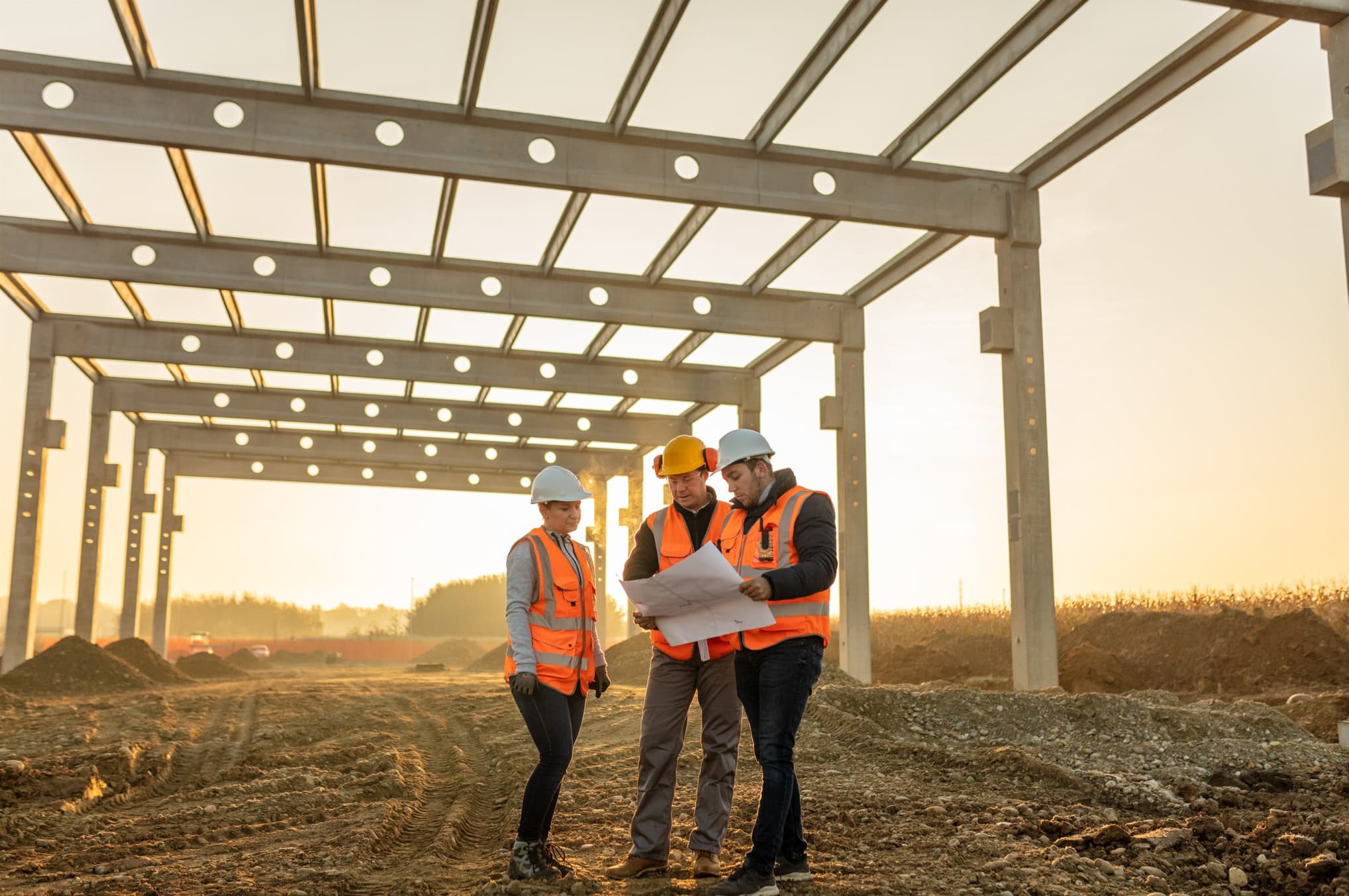The role of artificial intelligence in the future of commercial real estate in Australia
A discussion with Stacey Walker, Head of Consulting in APAC, on the technology landscape in Australia - and the role of AI in the future of CRE for the region.

Key highlights
We recently sat down with Stacey Walker, Head of Consulting and Pre-sales for Asia-Pacific, to discuss the CRE technology landscape in Australia and, more importantly, the impact these changes are expected to have on CRE organisations and outcomes in 2025
Much of the AI-powered disruption expected across the CRE landscape will be generationally driven, led by those who have grown up with technology and are comfortably leveraging these technologies to supercharge their careers and personal outcomes in the near term
Investing in the right tools isn’t just about operational efficiency – it’s about retaining and attracting the best people who can propel the organisation forward
Historically, technology has been seen as a cost centre; however, companies have demonstrated that, when leveraged correctly, technology can transform into a significant revenue generator
Now, more than ever, CRE organisations need to rethink diversity at the board and executive levels to create a robust ecosystem of skills, expertise, people, processes, technology, and data that provides a true competitive advantage
The industry is likely to see new roles emerge, such as a Chief Ethics Officer or similar governance positions, to ensure AI applications don't replicate past biases but instead promote fairness and transparency
Within a few years, those not using AI will find themselves in the minority, as the industry increasingly recognises the technology’s potential to drive meaningful efficiencies and innovation
What’s next for Australia’s commercial real estate sector?
2024 was a big year for technology, as we saw the widespread adoption of innovative tools that have pushed their way into the mainstream spotlight. With the meteoric rise of artificial intelligence (AI) powered platforms like ChatGPT, the use case for new technology appears to be understood not only by the young up-and-comers of tech hubs like Silicon Valley, but by the majority of the population – spanning regions, generations and industries.
Within the world of commercial real estate (CRE), the call for digital innovation is not new – but it appears, finally, to be answered. Where companies and stakeholders once relied on legacy processes and platforms suited for a past market that no longer exists, we are now seeing key players across the industry adopt a “work smarter, not harder” mantra with the help of big data (and big tools).
With change now unfolding across the CRE industry in Australia, we are met with the question – how will advancements in the technology and AI shape the future of the commercial property sector? We sat down with Stacey Walker, Head of Consulting and Pre-sales for Asia-Pacific, to discuss the CRE technology landscape in Australia and, more importantly, the impact these changes are expected to have on CRE outcomes in 2025.
Tell us about your background and how you got into the property technology sector in Australia?
As Albert Einstein famously suggested, “We cannot solve our problems with the same thinking we used when we created them.” I started in technology back in 1997, but I didn’t enter the property sector until the last decade, despite my family’s ties to residential and commercial property. That being said, coming into the industry with a tech background from other fields has been invaluable – I was able to come to the table with a fresh perspective, and introduced new ideas to the property and commercial real estate space, which remains a tight-knit community — especially in Australia.
How do you see AI shaping CRE in Australia?
My answer might surprise you, in the sense that I don’t believe the CRE sector is ready to fully leverage AI – whether prescriptive or predictive analytics – yet, because it all depends on the quality of the data. To be frank, the property sector remains a laggard industry in this regard, as there is still a significant amount of foundational work needed to get our data in order before we can use AI effectively for predictions or tasks traditionally handled by humans.
That said, I do think AI is already poised to dramatically influence the CRE landscape — and many other industries — by enhancing individual efficiency. For instance, tasks like drafting a document that might have taken days can now be accelerated with tools like ChatGPT or other large language models. These technologies enable individuals to validate ideas, create content, and work more efficiently.
The caveat to this, I don’t see this change being organisation-wide or top-down in the near term; rather, I think it will be generationally driven, led by those who have grown up with technology and are comfortable with AI. Tools with built-in AI, like Snapchat’s assistant, are second nature to this demographic, and they’ll likely be quick to leverage these technologies to supercharge their careers and personal outcomes in the near term.
We also have to consider the fact that employees today are far more tech-savvy than they were 5 or 10 years ago, and they’re gravitating toward companies that invest in technology. They know modern tools make their jobs easier and more impactful. They want to use their skills to drive meaningful change within an organisation, a region, or even on a global scale. When we understand this, we understand that the companies that fail to prioritise technology that enhances the employee experience, ultimately lose out on top talent. Investing in the right tools isn’t just about operational efficiency; it’s about retaining and attracting the best people who can propel the organisation forward.
What are some of the most significant challenges you’ve faced when implementing new technologies in CRE?
Applying artificial intelligence to bad data is akin to handing someone the wrong map and sending them into the wilderness — you’re setting them up to reach the wrong destination. With this in mind, it’s critical for organisations to get their data right before diving into AI. For those eager to experiment, I’d recommend doing so in a controlled test environment to identify and address gaps or inaccuracies in the data first.
Another key challenge lies in how organisations view technology. Historically, it’s been seen as a back-office function – in other words, a cost centre. However, companies like Amazon have demonstrated that, when leveraged correctly, technology can transform into a significant revenue generator. Now more than ever, organisations need to shift their mindset and invest sustainably and ethically in technology to unlock its full potential.
How can organisations ensure they are leveraging technology sustainably and ethically?
I truly believe CRE organisations need to rethink diversity at the board and executive levels, ensuring they’ve created a robust ecosystem of skills, expertise, people, processes, technology, and data that provides a true competitive advantage. It’s not just about having a CIO, CTO, or Chief Digital Officer — it’s about ensuring these roles have both the accountability and authority to drive meaningful change at the executive level.
We also need to shift our mindset about problem-solving and competitiveness, as today’s challenges are increasingly complex and ecosystem-driven. No single piece of technology can solve every problem — it requires an integrated approach across systems, processes, and people. Technology is not a one-time investment; it’s a virtual asset, but it’s an asset nonetheless, and without continuous investment, it will degrade and lose value over time.
It’s also important to recognise the inherent biases in the data we’ve collected over the past two decades. Even with statistically significant datasets, the origins and creators of that data carry biases that can perpetuate into the future if left unchecked. This is why I believe we’ll see new roles emerge, such as a Chief Ethics Officer or similar governance positions, to ensure AI applications don't replicate past biases but instead promote fairness and transparency.
Ultimately, it’s not just emerging technologies that will reshape the industry — it’s emerging ways of thinking. How we approach governance, diversity, and the ethical application of AI will define the industry's future just as much as the technology itself.
How do you expect AI to evolve and impact Australian CRE in the next 5 to 10 years?
On the topic of generationally-driven changes, I actually think we are on the cusp of a generational shift in CRE. We are seeing a slow but significant departure from traditional – call it “legacy” – ways of thinking, and now individuals with more forward-thinking, innovative approaches have an opportunity to rise up the ranks. As these thinkers become key decision-makers and influencers, they are likely to usher in a broader dissemination of innovative practices across organisations.
If we start laying the groundwork now — building strong data foundations, improving process management, and maintaining good governance to ensure data accuracy — we’ll be better positioned to leverage the most powerful applications of AI in the next 5 to 10 years. However, even then, AI’s impact will likely be limited to areas where we have statistically significant data, such as foot traffic or square metre rates in CRE.
As for Australia’s CRE sector, I anticipate the disruption of AI to feel more like a slow burn. Of course, the mandate for improved operational efficiency is not new to CRE, but many efforts so far have been incremental — minor tweaks rather than transformative changes. Innovative, nimble second-tier organisations are now in position to lead the charge, creating FOMO (fear of missing out) across the broader industry.
Fear of missing out (FOMO), fortunately, can be a powerful force, and once these trailblazers show tangible results, others will follow suit. Within a few years, those not using AI will find themselves in the minority, as the industry increasingly recognises the technology’s potential to drive meaningful efficiencies and innovation.
Conclusion
When we consider the CRE technology landscape in Australia (and beyond), one thing becomes clear: success will not come from incremental change, insular thinking, or the isolated adoption of tools like AI. Instead, it will require a holistic rethinking of how organisations approach data, technology, and governance. The challenges of today — poor data quality, legacy systems, and outdated mindsets — must be addressed head-on to unlock the transformative potential of AI and other emerging technologies.
Over the next decade, CRE organisations must prioritise finding the balance between innovation and ethical responsibility, while working to build diverse leadership teams with the skills, accountability, and authority to lead our industry’s charge into the future. Ultimately, those companies who embrace change with intentionality will not only gain a competitive edge but also help redefine what success looks like in Australian CRE.
Want to be notified of our new and relevant CRE content, articles and events?
Subject Matter Expert

Stacey Walker
Head of Consulting and Pre-Sales, Asia-Pacific
Subject Matter Expert

Stacey Walker
Head of Consulting and Pre-Sales, Asia-Pacific
Resources
Latest insights





Jan 8, 2025
Part 4 - The trade-off between development feasibility software and spreadsheets

